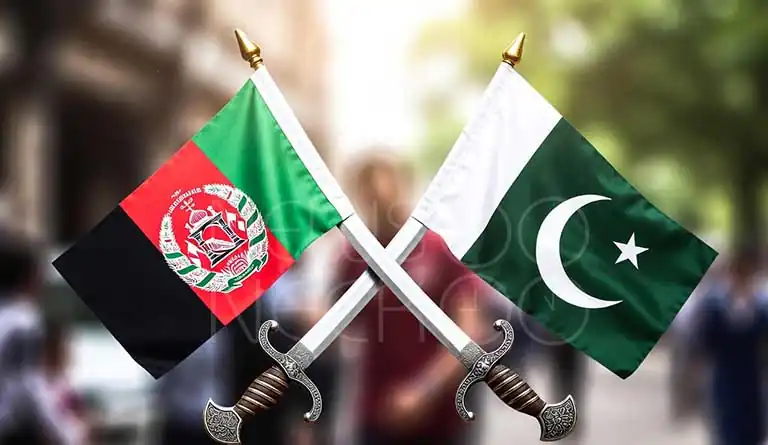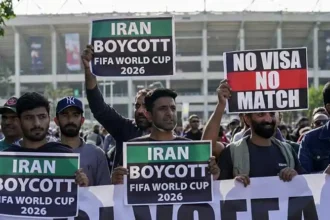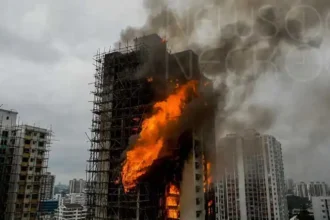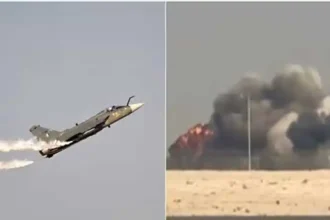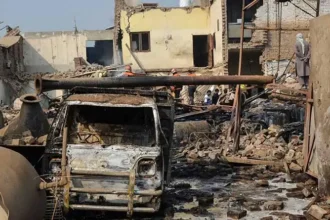When Bombs Shatter Peace: Can Two Neighbors Stop Fighting Before It’s Too Late?
The smoke had barely cleared from the courthouse entrance when Pakistan’s defense minister grabbed his phone and typed out a message that sent chills across the region. What happened next would test whether two countries locked in bitter conflict could still find their way back from the edge or whether they were destined to plunge into something far worse.
A Tuesday Morning That Changed Everything
Tuesday started like any other day at the district court in Islamabad, Pakistan’s capital city. Lawyers carried briefcases stuffed with legal documents. Citizens arrived hoping to resolve their cases. Security guards stood at their usual posts by the entrance gates.
Then, in a horrifying instant, everything exploded.
A suicide bomber detonated explosives right at the courthouse entrance, tearing through the morning calm and leaving destruction in its wake. Bodies lay scattered. The wounded cried out for help. Panic swept through the surrounding streets as people ran for safety.
Less than two hours after the blast, Khawaja Asif, Pakistan’s defense minister, was already on social media calling the attack “a wake-up call” and declaring it “a war for all of Pakistan.”
His words were sharp and pointed directly at Afghanistan. Asif wrote on his social media account that while Kabul’s rulers have the power to stop terrorism in Pakistan, extending the conflict to Islamabad sends a clear message one that, praise be to God, Pakistan has the full strength to answer.
These were not gentle diplomatic words. These were the words of a man whose patience had run out.
The Peace That Barely Existed
What makes this attack particularly devastating is its timing. Just weeks earlier, Pakistan and Afghanistan had been trying really trying to stop fighting each other.
In October, deadly battles had erupted along their shared border. Soldiers fired at each other across the frontier. Artillery shells screamed through the air. People living in border villages fled their homes, terrified of being caught in the crossfire.
Finally, exhausted by the violence, both sides agreed to stop. They traveled to Doha, the capital of Qatar, where Asif and his Afghan counterpart, Mullah Mohammad Yaqoob, signed a ceasefire agreement. For a brief moment, hope flickered that maybe just maybe these two neighbors could learn to live peacefully side by side.
But signing paper agreements is easy. Making peace last is the hard part.
Following the Doha ceasefire, diplomats from both countries met twice in Istanbul, Turkey’s largest city, trying to build on that fragile beginning. They wanted to transform a temporary pause in fighting into something more permanent—a genuine pathway toward lasting peace.
Both rounds of talks failed to produce significant results.
Now, with Tuesday’s suicide bombing in Islamabad, even those slim prospects for peace appear to be dying. Turkey is still trying to help a Turkish delegation is scheduled to arrive in Pakistan later this week to salvage the talks but the atmosphere has turned toxic.
Speaking on Pakistani television Tuesday, Asif made his country’s position frighteningly clear. “All their wars have been based on insurgency,” he said, referring to Afghanistan. “To counter that, we must rely on conventional war, and Pakistan has a great army.”
Also Read: Pakistan Afghanistan conflict:
These are the words that precede invasions.
Friends Who Became Enemies
Understanding how Pakistan and Afghanistan reached this dangerous moment requires looking backward at their complicated relationship.
For many years, Pakistan maintained close ties with the Afghan Taliban. When the Taliban swept back into power in Afghanistan in August of two thousand twenty-one, capturing the capital Kabul and taking control of the entire country after American forces withdrew, many Pakistanis actually welcomed it. They believed friendly relations with Afghanistan’s new rulers would bring stability to the region.
Instead, relations quickly soured.
Pakistan accuses Afghanistan of providing safe shelter to the Tehreek-e-Taliban Pakistan, usually called TTP for short. This armed group emerged in two thousand seven and has waged a brutal campaign of violence against the Pakistani state ever since. Many people describe the TTP as the ideological twin brother of the Afghan Taliban similar beliefs, similar methods, but focused on attacking Pakistan instead of controlling Afghanistan.
The Afghan Taliban strongly deny Pakistan’s accusations. They insist they are not harboring Pakistani militant groups.
But Pakistan’s accusations don’t stop with the TTP. Islamabad also claims Afghanistan is sheltering the Balochistan Liberation Army, known as BLA, which fights for independence of Pakistan’s resource-rich Balochistan province. Pakistan even accuses Afghanistan of hosting the local branch of the Islamic State group, called ISKP even though the Islamic State and the Afghan Taliban are bitter enemies who frequently attack each other.
Read More: Afghanistan–Pakistan Ceasefire Exposes Fragile Peace
The Rising Tide of Blood
Numbers tell a grim story. The last two years have witnessed a dramatic surge in violence inside Pakistan. Most attacks have concentrated in Khyber Pakhtunkhwa and Balochistan provinces, both sharing long, porous borders with Afghanistan.
Law enforcement personnel have suffered disproportionately. Police officers, soldiers, and security guards have been targeted again and again. More than twenty-five hundred people were killed in armed attacks across Pakistan during two thousand twenty-four, making it one of the country’s deadliest years in nearly a decade.
And two thousand twenty-five appears headed toward being even worse.
Beyond Tuesday’s suicide bombing in Islamabad, another major incident unfolded simultaneously in Wana, the administrative center of South Waziristan, a tribal district near the Afghan border. Militants launched a complex attack that could have resulted in catastrophic casualties. Pakistani military forces conducted a two-day operation that finally concluded Tuesday night, rescuing more than five hundred students, teachers, and staff members who had been trapped.
Will War Come?
Despite all the angry rhetoric and mounting violence, security analysts believe the chances of full-scale conventional war between Pakistan and Afghanistan remain “very slim.”
Fahad Nabeel, who heads Geopolitical Insights, a research organization based in Islamabad, explained why war seems unlikely. “Opting for a conventional war against Afghanistan would damage the positive image Pakistan has cultivated over the past few months,” he told reporters.
Pakistan has recently grown closer to American President Donald Trump’s administration. Islamabad has also been promoting a narrative that portrays itself as a victim of violence from its neighbors both India and Afghanistan rather than someone who starts conflicts. Launching an invasion would destroy that carefully constructed image.
Iftikhar Firdous, a security analyst who co-founded Khorasan Diary, a website tracking regional security developments, shares this assessment. He notes that Turkey’s continued mediation efforts with a delegation arriving later this week—suggests both Afghanistan and Pakistan might still be willing to step back from the edge.
Firdous also pointed to something significant: the Afghan Taliban condemned Tuesday’s Islamabad attack. In a statement released Tuesday evening, Abul Qahar Balkhi, spokesperson for Afghanistan’s Foreign Ministry, said Kabul “expresses its deep sorrow and condemnation” regarding both the Islamabad explosion and the Wana attack.
This condemnation matters. It suggests that despite everything, Afghanistan’s rulers don’t want the peace process to collapse entirely.
A Dangerous Crossroads
Two neighbors stand at a dangerous crossroads. One road leads toward more dialogue, difficult compromises, and the hard work of building peace. The other road leads toward war conventional military conflict that could devastate both countries and destabilize an entire region already suffering from decades of violence.
Which path will they choose? The answer may depend on whether cooler heads can prevail over hot rhetoric, whether diplomats can succeed where soldiers have failed, and whether both sides can find the courage to keep talking even when bombs are exploding.
The Turkish delegation arriving this week carries a heavy burden nothing less than the hope that two countries can learn to stop killing each other’s citizens and start solving their problems with words instead of weapons.
For more Visit NewsNeck


